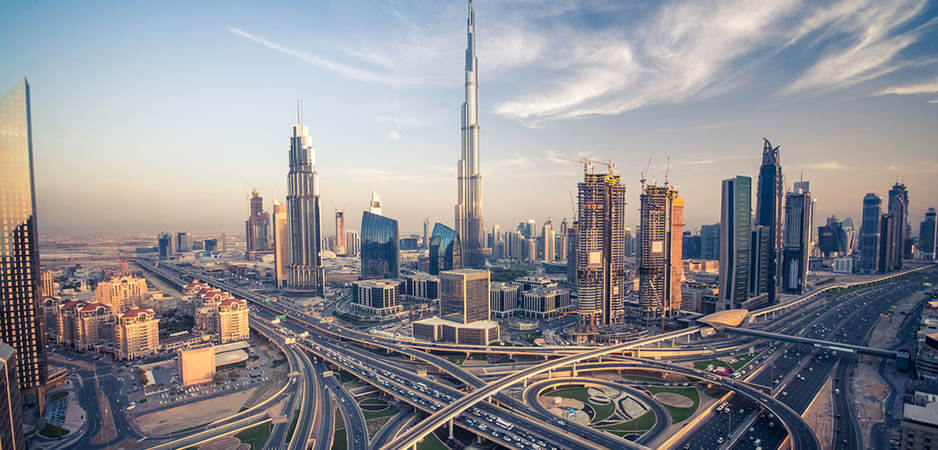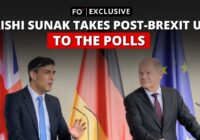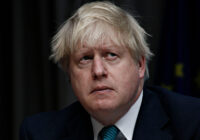Nearly three years since the referendum, discussions over a Brexit deal are in a state of limbo. After British MPs rejected the withdrawal agreement three times, the European Union reluctantly backed a six-month extension to October 31. In the meantime, there is speculation about a post-Brexit future and what that could mean for the world.
With most of the talk surrounding the future of EU states, the Middle East remains a largely overlooked yet vital region for post-Brexit developments. A few days before the referendum in 2016, Global Risk Insights (GRI) published a list of four effects of Brexit on the Middle East and North Africa (MENA). These included a weaker, more inward-looking Europe; a more interventionist, self-interested UK foreign policy in the region; more volatility in MENA markets, with an increase in trade and investment; and, finally, a rise in various alliance systems and regional organizations. It is worth taking a look at each of the implications posed by GRI.
A weakened European Union
Often considered the backbone of the EU, the United Kingdom has played a vital role in the European Union’s economic development, foreign policies, trade activities and soft power expansion over the years. That said, since the Brexit referendum, there have been various right-wing discussions across the union.
In Poland, there have been disagreements between the government and the EU over contentious judiciary reforms. At one point, European Council President Donald Tusk — Poland’s former prime minister — said: “The matter is dramatically serious. The risk is deadly serious. Polexit is possible.” Similarly, Hungary, spearheaded by Prime Minister Viktor Orban’s right-wing government, is at odds with the EU. In 2018, lawmakers voted overwhelmingly to label Orban’s government as a “systemic threat to the rule of law.” Though currently unlikely, departures from the EU remain possible.
As a result of cracks within the union itself, the EU is no longer the visionary behemoth of civil rights and order it once was. Its economic and political resilience was already once tested in 2015 during the height of the refugee crisis. A weaker and more inward-looking EU will affect the financial scope and longevity of its various initiatives across the MENA region, be it sustainability projects, infrastructure-building, governance guidance or women’s health programs — many of which are currently operating via the European External Action Service.
Additionally, a weakened EU with increasingly right-wing states will only worsen the refugee crisis. Although much less than in 2015, the incoming refugees from war-torn countries such as Syria and Iraq will, as GRI states, “fall victim to realpolitik (as has been demonstrated recently with the EU-Turkey deal).” This agreement meant refugees were essentially transferred to and from Turkey and the EU as political pawns. It is important to note that nearby countries such as Turkey and Jordan are already heavily bloated as they continue to take in the largest number of refugees from Syria and Iraq.
A fragile EU in a post-Brexit future will likely encounter difficulty in talks with the MENA region’s rulers surrounding stability and border security. Hence, the refugee crisis will likely worsen as the EU loses its capacity to alleviate the region’s burdens. In addition, leaders such as Turkish President Recep Tayyip Erdogan will likely exploit the crisis for their own political gains.
Increased interventionist UK foreign policies
Even though the UK has historically exercised its own set of foreign policies in the MENA region, dating back to the colonial era, a post-Brexit future will enable the country to break free from the EU’s regional agenda and pursue a more interventionist policy. As the EU remains involved in the Middle East peace processes in both the Israeli-Palestinian conflict and the Syrian War, an independent UK will likely prioritize more short-term agendas, as GRI predicts.
One of these will likely be an increased presence in the global coalition’s fight against terrorism. Though the threat of the Islamic State (IS) group has been largely subdued, its remaining enclaves and networks across the region (as well as the recent resurfacing of IS leader Abu Bakr al-Baghdadi) prove that the fight is far from over. As such, the UK’s Foreign Affairs Select Committee has recommended a doubling of the Foreign Office’s budget, “if not triple,” according to committee chairman Crispin Blunt.
That said, it is unlikely that the UK will simply put the Middle East peace process on the back burner, as GRI predicts, especially if the country wants to maintain its relevance and influence in the region. If anything, a post-Brexit future may actually be the most ideal time for Britain to assert itself in the MENA region, especially as the EU could be further weakened by Britain’s departure and its own internal problems.
However, what does seem to be a likely prediction from GRI is Britain’s increased promotion of UK businesses across the region, especially in the Gulf, as Saudi Arabia and the United Arab Emirates remain one of the UK’s largest trading partners. Speaking to Khaleej Times, Tim Fox, chief economist and head of research at Emirates NBD, a Dubai-listed bank that is the third-largest by assets in the Gulf Cooperation Council (GCC) bloc, states: “Extracting itself out of the EU-GCC stalled FTA process may actually breathe new life into the UK’s trading relationships with the Gulf.”
Increased volatility in markets
GRI predicts that oil prices across the region will continue to be affected, so long as there remains political uncertainty surrounding a lack of leadership in a post-Brexit future. GRI provides the example of Turkey, which it says will feel the biggest impact of rising oil prices, given the plummeting lira that has been in decline for months. While this may be true for Turkey, a post-Brexit future may mean something quite different for the Gulf countries.
As of November 2018, foreign investment in the UK fell by 19% since the Brexit referendum. However, the impact in the Gulf will likely be less stark, at least in the short run. For some analysts, industries such as real estate will see a boon in business as “investors buying in dollar-pegged currencies such as the [UAE] dirham can pick up discounted deals.” According to UK Trade Commissioner Simon Penney, “While currency fluctuations may have an impact on some imports, sterling’s fluctuations have boosted the competitiveness of many UK exports and the trade flows between the UK and the Middle East remain very healthy.”
 Nevertheless, the long-term post-Brexit landscape in the GCC remains to be seen. A depreciated pound will likely lead to a decrease in investments and tourists coming from Britain; in 2018, the UK ranked third in regards to the number of tourists visiting Dubai. Speaking to Arabian Business in January 2019, Jeremy Parrish, former CEO of Standard Chartered UAE, stated: “In the event of a no deal Brexit … foreign investment will drop, inflation will rise and supply chains will be badly disrupted.” Additionally, in the event of a no-deal, which would see Britain crash out of the European Union, GCC investors may likely avoid UK stocks and linkage to an unsteady pound and will likely “seek shelter in other safe havens,” according to Wes Schwalje, COO of Dubai-based research firm Tahseen Consulting.
Nevertheless, the long-term post-Brexit landscape in the GCC remains to be seen. A depreciated pound will likely lead to a decrease in investments and tourists coming from Britain; in 2018, the UK ranked third in regards to the number of tourists visiting Dubai. Speaking to Arabian Business in January 2019, Jeremy Parrish, former CEO of Standard Chartered UAE, stated: “In the event of a no deal Brexit … foreign investment will drop, inflation will rise and supply chains will be badly disrupted.” Additionally, in the event of a no-deal, which would see Britain crash out of the European Union, GCC investors may likely avoid UK stocks and linkage to an unsteady pound and will likely “seek shelter in other safe havens,” according to Wes Schwalje, COO of Dubai-based research firm Tahseen Consulting.
Rise in alliance systems and regional blocs
Last but not least, GRI predicts that because of a self-serving UK and an inward-looking EU, there will likely be the rise of other regional blocs and global powers such as China. This seems somewhat unlikely, given that Beijing has long established its foothold in the MENA region via business ties and investments. Perhaps its most notable example is President Xi Jinping’s One Belt One Road (OBOR) initiative. Since 2013, China has set up its OBOR camp in the region, establishing container terminals at vital ports and investing in aerospace research, amongst many other projects. Hence, it is unlikely there will be a sudden spike in Chinese activities in the post-Brexit MENA region, given that it has been working ambitiously to establish a foothold long before the 2016 referendum.
GRI also predicts that blocs such as the GCC will step in and develop stronger security and economic frameworks to address the MENA region’s issues. This is too idealistic, given the current political obstacles in the system — the blockade of Qatar, for instance — and the splintering of various member states into their own network groups, such as the Saudi-Emirati Coordination Council. That said, it is unlikely that MENA will witness the unionization of the GCC in a post-Brexit future that will help address the region’s problems, especially as each member state possesses its own political motivations.
Ultimately, it is inevitable that a post-Brexit future will shape the Middle East and North Africa landscape. The question that remains is just how much will change and whether it will be for the better or the worse.
*[Gulf State Analytics is a partner institution of Fair Observer.]
The views expressed in this article are the author’s own and do not necessarily reflect Fair Observer’s editorial policy.
Support Fair Observer
We rely on your support for our independence, diversity and quality.
For more than 10 years, Fair Observer has been free, fair and independent. No billionaire owns us, no advertisers control us. We are a reader-supported nonprofit. Unlike many other publications, we keep our content free for readers regardless of where they live or whether they can afford to pay. We have no paywalls and no ads.
In the post-truth era of fake news, echo chambers and filter bubbles, we publish a plurality of perspectives from around the world. Anyone can publish with us, but everyone goes through a rigorous editorial process. So, you get fact-checked, well-reasoned content instead of noise.
We publish 2,500+ voices from 90+ countries. We also conduct education and training programs
on subjects ranging from digital media and journalism to writing and critical thinking. This
doesn’t come cheap. Servers, editors, trainers and web developers cost
money.
Please consider supporting us on a regular basis as a recurring donor or a
sustaining member.
Will you support FO’s journalism?
We rely on your support for our independence, diversity and quality.






